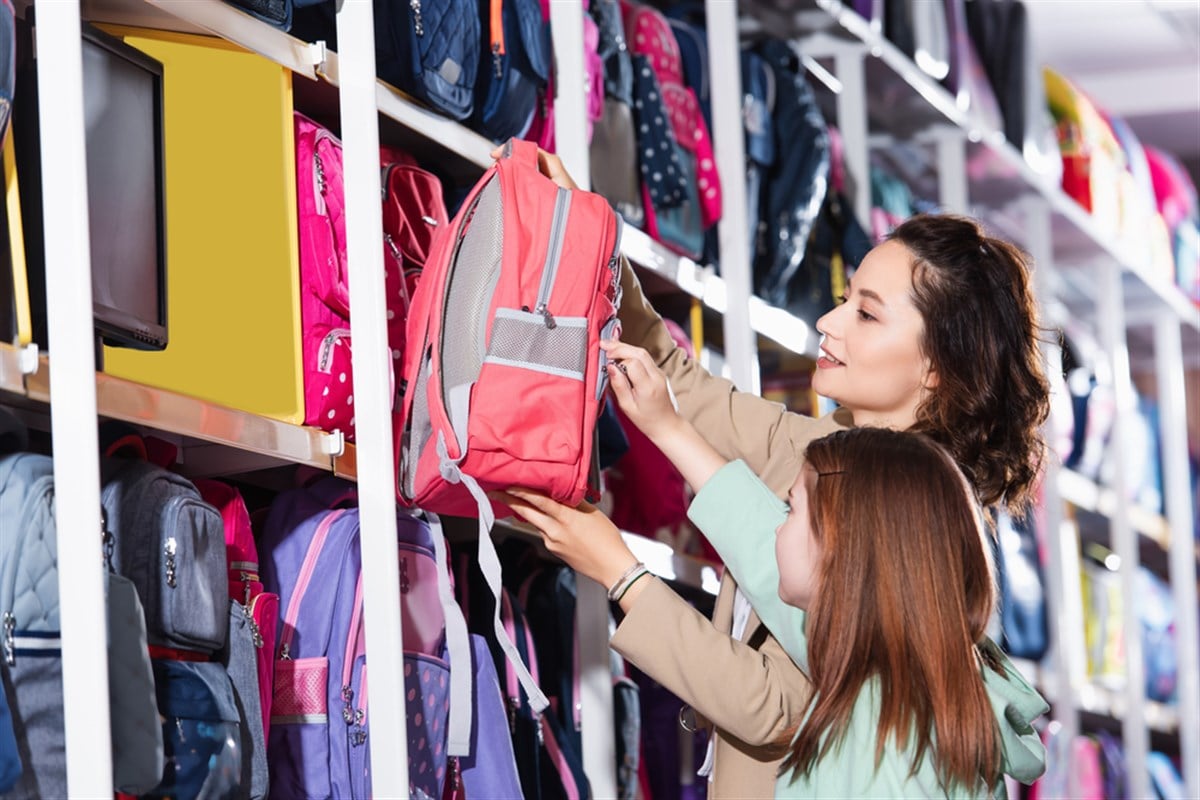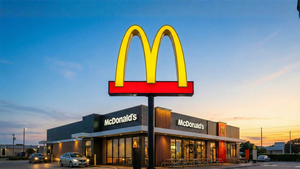
The economic headwinds facing consumers this back-to-school season are impacting the retail industry in profound ways. Inflation, rising interest rates, and concerns about a possible recession lead to a cautious consumer sentiment. Shoppers are becoming more price-conscious, prioritizing value over brand names and carefully evaluating their discretionary spending. These trends force retailers to adapt their strategies to attract and retain customers in a rapidly changing market.
To understand how consumers respond to these challenges, it is essential to examine key retailers' recent earnings reports and fall strategies. By reviewing key metrics like comparable sales, inventory levels, and profit margins, we can gain valuable insights into the financial health of back-to-school spending and what it signals for the broader retail sector.
Fall Season Readiness: Retail Strategies for Back-to-School Demand
American Eagle Outfitters
American Eagle Outfitters (NYSE: AEO) is known for its on-trend clothing and accessories for young adults. The company reported a strong second quarter of fiscal 2024, with total net revenue increasing by 8% to $1.3 billion. The company’s success can be attributed to its focus on offering high-quality, on-trend clothing at affordable prices, its e-commerce platform, and its successful strategies for attracting and retaining customers.
Aerie, AEO’s fast-growing intimates and activewear brand, continued to drive the company’s success, with revenue rising 9% and comparable sales increasing 4% during the second quarter. This growth underscores the enduring appeal of Aerie’s products, which resonate with a growing base of customers seeking comfortable, stylish, and inclusive apparel.
Despite a challenging economic environment, AEO's operating income surged by 55% to $101 million in the second quarter. This impressive performance highlights the company's disciplined approach to managing expenses and maximizing profitability.
The company is leveraging its investments in digital capabilities, supply chain optimization, and strategic partnerships to streamline operations and drive cost efficiencies.
AEO is well positioned for the upcoming Fall season, which includes the crucial back-to-school shopping period, with its focus on delivering high-quality, on-trend apparel at value prices. This approach is expected to continue driving sales and profitability in the coming months.
Burlington Stores
Burlington Stores (NYSE: BURL) is known for offering off-price, high-quality, branded merchandise at a discount. The company reported strong second-quarter results, demonstrating its success in attracting price-conscious consumers. Comparable store sales increased by 5%, driven by Burlington’s merchandising strategy, its focus on providing a compelling assortment of products at competitive prices, and its effective use of promotions.
Burlington Stores is well-positioned for the upcoming Fall season, including the back-to-school period, with its well-managed inventory levels and strategic acquisitions. Merchandise inventory increased by 4% compared to the same period last year, indicating that the company is strategically balancing its inventory to ensure it can meet the needs of its customers while minimizing the risk of excess inventory.
The acquisition of Bed Bath & Beyond leases has allowed the company to expand its footprint and offer its customers a broader range of products. This strategic move has played a significant role in Burlington’s recent performance, contributing to its strong sales growth and margin expansion.
Burlington is ready to capitalize on the back-to-school season, which is expected to be a key period for the company's financial performance.
The combination of value-driven merchandise, disciplined inventory management, and strategic expansion initiatives positions Burlington to attract price-conscious consumers and drive continued growth in the coming months.
Destination XL Group
Destination XL Group (NASDAQ: DXLG) is a specialized retailer catering to the unique needs of the Big + Tall customers. The company is navigating a challenging retail environment with declining sales, lower conversion rates, and pressure on consumer discretionary spending. Destination XL's total sales fell by 10.9% in the second quarter of fiscal 2024, reflecting the challenging market conditions. Comparable sales also decreased by 10.9%. This decline is primarily due to reduced traffic in the company's stores and lower conversion rates in its online business.
Despite the challenging sales environment, DXLG managed to maintain a flat merchandise margin. However, the company's gross margin rate, including occupancy costs, was 48.2%, down from 50.3% in the same period last year.
The decline in gross margin can be attributed to a combination of factors, including increased occupancy costs and higher markdowns on merchandise to ensure healthy inventory levels.
As DXLG prepares for the fall season, the company is focusing on controlling expenses and managing its inventory to mitigate the impact of the challenging market conditions. The company strives to achieve profitability through disciplined expense management and carefully choosing its merchandise assortment.
DXLG is committed to maintaining its focus on the elements of the business within its control, such as optimizing merchandise margins and managing expenses and inventory levels. This disciplined approach will position the company to generate improved results when the economic cycle reverses.
Back-to-School Spending: A Signal for the Seasons Ahead
The recent earnings reports from our three retailers provide a glimpse into the consumer landscape as we head into the back-to-school season and beyond. These reports reveal a volatile landscape, with consumers exhibiting resilience and caution in the face of economic headwinds, offering valuable insights into what we can expect for the upcoming fall and holiday seasons.
AEO's strong performance suggests that younger consumers are still willing to spend on items they perceive as stylish and value-driven. This indicates that back-to-school spending could remain robust, potentially carrying over into the fall and holiday seasons. However, AEO's overall sales growth was partly driven by a shift in the retail calendar, suggesting that even this demographic remains sensitive to economic fluctuations.
Burlington Stores' strong comparable sales growth and expanded gross margin demonstrate that value-conscious consumers actively seek bargains. This suggests that consumers increasingly prioritize value over brand names, a trend likely to continue throughout the fall and holiday seasons as they seek to stretch their budgets. The company's acquisition of Bed Bath & Beyond leases further emphasizes the growing demand for home goods, signaling a shift in spending priorities that could also impact the holiday season.
Destination XL Group's sales decline highlights the challenges facing specialty retailers, especially those catering to niche markets. The company's focus on managing expenses and inventory levels reflects a strategic response to economic uncertainty. This cautious approach might suggest that the company is not expecting a significant surge in demand during the fall and holiday seasons.
Overall, the earnings reports reveal a consumer landscape where shoppers are still willing to spend but are becoming increasingly discerning and value-conscious. Retailers must adapt to this new reality, prioritizing value offerings and flexibility to navigate a challenging economic environment. The upcoming fall and holiday seasons will test their ability to cater to these evolving consumer priorities.






